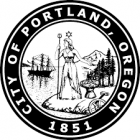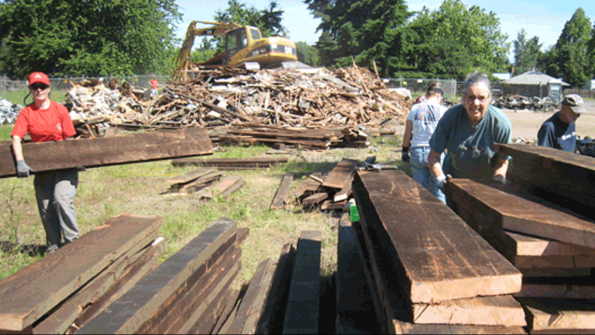Sustainable product options may increase in co-ops
Portland, Ore., is on a roll. The city has long been recognized for its sustainability efforts, and in 2015 it earned several more achievements. That includes five outstanding case study awards from the Sustainable Purchasing Leadership Council.
Portland, Ore., is on a roll. The city has long been recognized for its sustainability efforts, and in 2015 it earned several more achievements. That includes five outstanding case study awards from the Sustainable Purchasing Leadership Council.
Portland also was selected as one of the five best cities for doing green business last year. Its large number of LEED-certified buildings, growing use of renewable energy and title as “America’s Most Bikeable City” were all weighed in the selection process by The Chic Ecologist website.
To learn more about Portland’s drive to sustainability, GPN reached out to Christine Moody, the city’s Chief Procurement Officer. The Procurement Services team is part of the Bureau of Revenue and Financial Services within Portland’s Office of Management and Finance. 
For public buyers, sustainability and cooperative purchasing initiatives appear to be closely intertwined. That conclusion is based on results of the 2015 Government Procurement (GP) Forecast Survey. Almost half of the 500 respondents to the survey said cooperative purchasing programs (45.6 percent of respondents) and sustainability (42.2 percent of respondents) would significantly affect public procurement in the next couple of years. A total of six factors were listed in the survey questionnaire.
GPN asked Portland’s Moody about sustainability’s role in cooperative purchasing. Portland participates in cooperative purchasing agreements, including a cooperative pact with Vancouver, Wash. Below are Christine Moody’s views.
GPN: Will environmental and sustainability requirements lead to changes in cooperative purchasing programs?
Christine Moody: We have seen changes to cooperative purchasing over the last few years. Cooperative solicitations and the resulting contracts are now often including sustainability components.
GPN: Do cooperative programs address environmental products adequately now?
CM: Cooperative programs are gradually incorporating more sustainability considerations, however, there still is room for improvement – and there always will be. As we learn more about the human health and environmental impacts of products and services, we will need to continue to learn and update product and service requirements.
GPN: Will environmental and sustainability purchasing and product requirements change the way public purchasers buy, as well as the products they buy?
CM: Many agencies are now using a “best value” approach to public contracting in order to get the best product. This approach includes social and environmental factors along with price. As more and more public entities are interested in the environmental impacts of what they purchase, this will drive the marketplace to provide more sustainable products.
GPN: What kinds of products and services will be covered in future environmental and sustainability initiatives?
CM: Most likely there will be prioritizations made according to what sustainability-related issues public agencies are most engaged in. For example, energy and water efficiency are hot topics that are applicable to a variety of products and services.
Human health and product toxicity is another hot topic. One product category that comes to mind is the furniture industry and the latest changes taking place in that industry. As an example, we see the industry’s use of flame-retardant chemicals.
More sustainability initiatives in Portland
Portland officials continue to strive to save the environment. Last week, Portland City Council approved a resolution that directs the city’s Bureau of Planning and Sustainability to develop code language that requires projects seeking a demolition permit of a house or duplex to fully deconstruct that structure if it was built before 1916 or is a designated historic resource.
The code changes covering deconstruction will take effect on October 31, 2016. Through deconstruction, 8 million pounds (4,000 tons) of materials will be diverted for reuse annually. Deconstruction will also Increase the likelihood of discovering materials containing lead and asbestos for safe removal and disposal.
The Procurement Services team continues to strive for sustainability. Some examples of recent green acquisitions include hybrid utility trucks and solar-powered parking meters.
In July 2015, the National Procurement Institute awarded the Achievement of Excellence in Procurement (AEP) Award to Portland’s Procurement Services team. Procurement Services has earned the AEP award a total of ten times and consecutively over the past five years.
Michael Keating is Senior Editor of GPN, a sister brand of American City & County.
_____________
To get connected and stay up-to-date with similar content from American City & County:
Like us on Facebook
Follow us on Twitter
Watch us on Youtube




















